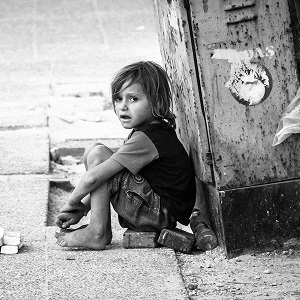The migrant crisis: how many more must die?
The image of a young, lifeless, Syrian boy – now named as Aylan Kurdi – lying face down on the beach, his death the result of his family’s desperate attempt to reach Greece by boat, has thrown into sharp relief...
The image of a young, lifeless, Syrian boy – now named as Aylan Kurdi – lying face down on the beach, his death the result of his family’s desperate attempt to reach Greece by boat, has thrown into sharp relief the human cost of the European Migrant Crisis.
Yet a seemingly unequivocal humanitarian issue has split public opinion, and opened a fissure in European politics.
Politicians broadly occupy two camps: on the one hand, there are those who believe this to be a solely humanitarian crisis, which should therefore be managed with exceptional humanitarian procedures such as a distribution of refugees, bypassing the Dublin system. On the other hand, there are those convinced that a proportion of these refugees are in fact economic migrants, and therefore pose a political challenge instead.
Those in the ‘political camp’ include the leaders of Slovakia, Hungary and Poland, who have said that their capacity to take in refugees extends only, or preferably, to Christians and not Muslims.
Also making it political is David Cameron. As Angela Merkel rallies Europe to reach an accord that will maintain the values of “universal civil rights”, Cameron has reiterated his stance that accepting “more and more refugees” will not solve the problem. The result of this unwillingness by European leaders to take their share of those arriving is what we are reading about in our newspapers, and watching on our televisions.
Apart from denouncing any idea that the UK would accept more refugees, our government has failed to share any potential solutions to the crisis. In recent days, Shadow Home Secretary Yvette Cooper has proposed that the UK could accept up to 10,000 refugees, if local authorities were willing to take on 10 families each – but there has been a general dearth of astute leadership from government and the opposition alike. Why?
Cameron is well aware of how politically sensitive this issue is: a week ago, official figures showed that net migration to the UK had increased by 40% from last year to 330,000 people. It is now four years since Cameron pledged to bring immigration down to the tens of thousands and he has failed, inevitably, in that endeavour. Alongside this, poll after poll tells us that immigration is a leading concern for voters.
The current UK political climate has rendered politicians afraid to distinguish between those seeking asylum and those ‘just’ seeking a better life as economic migrants, lest they appear out of touch with the electorate. David Cameron and Theresa May are deliberately conflating the two. They are shirking the UK’s responsibility for political reasons, to avoid both dissension within the Conservative party, and disapproval from sections of the public and the media.
How many more deaths will it take, before Cameron makes this differentiation loudly and clearly? These people are coming from countries such as Syria and Eritrea; countries where there is devastating conflict and ethnic strife – the rhetoric about economic migrants from these areas cannot be sustained. Must the UK relinquish its long-held tradition of upholding humanitarian rights, in the hope of achieving short-term, domestic political acceptance?
If our prime minister’s decision must be political rather than humanitarian, perhaps the best we can hope for is a shift in priorities. Some have suggested that Cameron may have to concede and accept more refugees in order to garner further support amongst EU leaders to push through his treaty reforms, particularly on the free movement of people. On this, Austrian Chancellor Werner Faymann’s words are telling: “When I think of the British, who have their own catalogue of demands, why should we do anything for them? Solidarity is not a one-way street”. Quite.
One thing is certain: children like three-year-old Aylan Kurdi will continue to die if European leaders don’t heed Angela Merkel’s call, and David Cameron should be leading by example.

